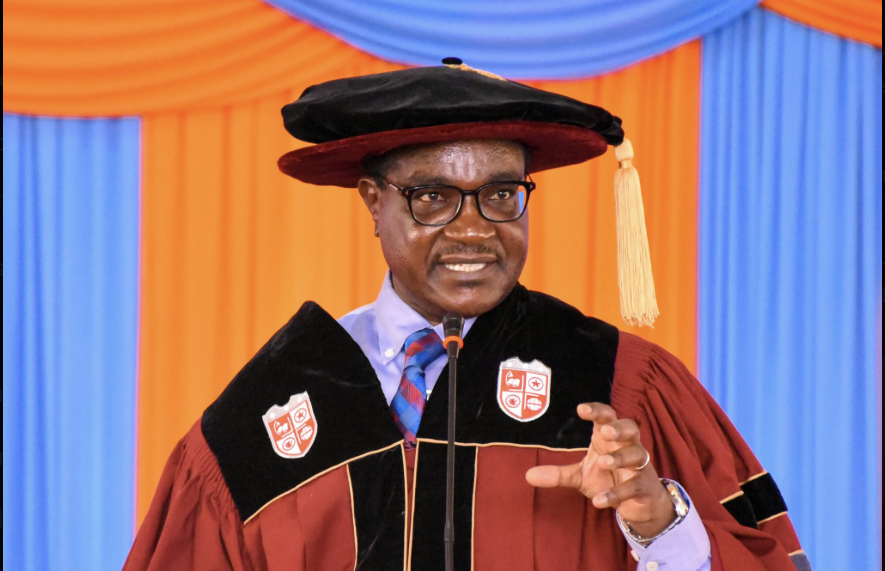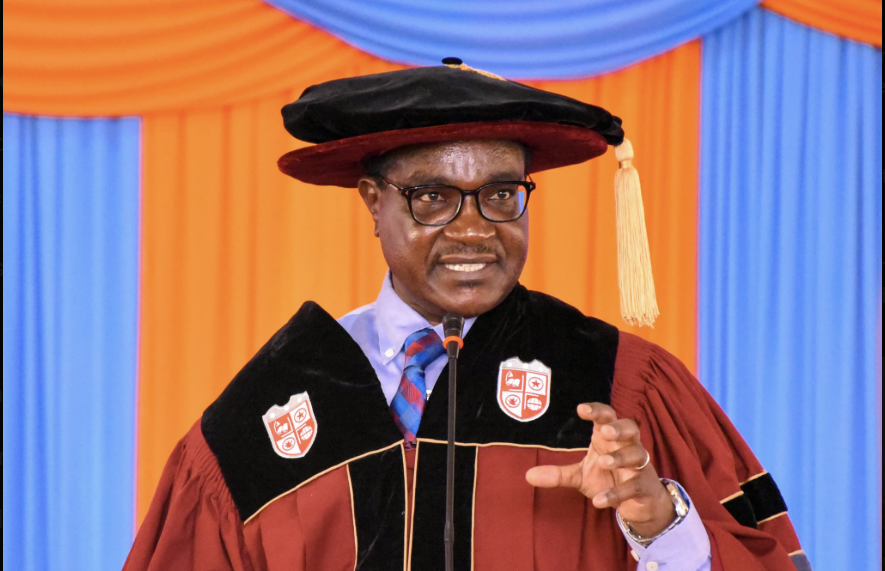

 Education Cabinet Secretary Julius Migos Ogamba during the 2nd Graduation Ceremony of Nyandarua National Polytechnic on Friday, September 19, 2025./Ogamba/X
Education Cabinet Secretary Julius Migos Ogamba during the 2nd Graduation Ceremony of Nyandarua National Polytechnic on Friday, September 19, 2025./Ogamba/X
Education Cabinet Secretary Julius Migos Ogamba has announced that the government is implementing Competency-Based Education and Training (CBET) and Dual Training approaches to better prepare Technical and Vocational Education and Training (TVET) graduates for the job market.
Ogamba said the initiatives aim to ensure that graduates gain practical skills and that their training aligns with industry needs.
He spoke on Friday during the 2nd Graduation Ceremony of Nyandarua National Polytechnic, where he joined Tourism and Wildlife Cabinet Secretary Rebecca Miano and the Principal Secretary for the State Department for TVET, Dr. Esther Thaara Muoria.
The event marked a historic milestone for the institution, as the graduates represented the pioneer CBET cohort since Nyandarua Polytechnic was elevated to a National Polytechnic in 2020.
Other leaders and education stakeholders also attended the ceremony, which highlighted the government’s focus on strengthening technical training to meet Kenya’s evolving labour market demands.
Competency-Based Education and Training (CBET) is an outcomes-oriented approach to teaching and assessment that focuses on learners demonstrating specific skills and knowledge—called competencies—to an agreed standard before they can progress or graduate.
From references such as UNESCO-UNEVOC, the International Labour Organisation (ILO), and Kenya’s Technical and Vocational Education and Training Authority (TVETA), key elements of CBET include:
i. Industry-defined standards: Training is designed around the competencies required in real workplaces, developed with employer and sector input.
ii. Mastery, not seat-time: Learners advance once they can perform a task or apply knowledge to the specified standard, regardless of how long it takes.
iii. Practical, hands-on learning: Emphasis is on applied skills and measurable performance rather than purely theoretical knowledge.
iv. Flexible assessment: Continuous or modular assessments—such as demonstrations, projects, or workplace observations—confirm that each competency has been achieved.
v. Link to employability: Because competencies are tied to occupational standards, graduates are better aligned with job-market needs.

















